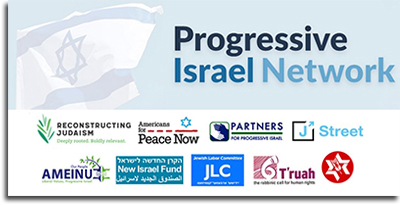PeaceCast Episode #158: West Bank Settlements Between Trump and Biden, with Hagit Ofran
Please Join Americans for Peace Now for this timely webinar, part of our series on the Israel-Palestine implications of the transition from the Trump administration to President-elect Biden’s administration.
Wednesday, December 9, 2020, 10:30 am (EST)
Dr. Hanan Ashrawi
Palestinian leader, legislator, activist, and scholar
Dr. Ashrawi will discuss the Palestinian perspective on the transition, and examine the state of US-Palestinian relations after Donald Trump’s four years in the White House, the Palestinian leadership’s efforts to push the reset button on the relationship as President-elect Biden prepares to enter the Oval Office next month, and the Palestinian expectations from the Biden administration. Dr. Ashrawi will also talk about the Palestinian leadership’s overall foreign policy, beyond the relationship with Washington.
REGISTER HERE
Currently a member of the Executive Committee of the Palestine Liberation Organization, Dr. Ashrawi has held official positions with the Palestinian Authority, was a member of the Palestinian Legislative Council, and founded the Palestinian Independent Commission for Human Rights (MIFTAH). She is considered one of the most compelling spokespeople for the Palestinian national cause.
 In response to a series of actions taken by the Netanyahu-Gantz
government in recent weeks, including home demolitions, forced evictions and new settlement approvals in Givat
Hamatos and E-1 meant to secure “facts on the ground” and prevent the successful pursuit of a two-state future
for Israelis and Palestinians, the Progressive Israel Network, in which APN is a member, issued the following
statement:
In response to a series of actions taken by the Netanyahu-Gantz
government in recent weeks, including home demolitions, forced evictions and new settlement approvals in Givat
Hamatos and E-1 meant to secure “facts on the ground” and prevent the successful pursuit of a two-state future
for Israelis and Palestinians, the Progressive Israel Network, in which APN is a member, issued the following
statement:
We are alarmed by the recent set of moves by the government of Israel to initiate settlement projects and take other provocative and harmful actions in East Jerusalem and the West Bank, including home demolitions and forced evictions, which further damage the possibility of a negotiated future two-state solution. It is clear that the Netanyahu government is trying to exploit the outgoing Trump Administration’s wholehearted embrace of Israel’s settlement enterprise in order to further erase the distinction between Israel and the territory it occupies. The recent announcement of the Israeli government’s approval of tenders for new construction in the planned settlement of Givat Hamatos and statutory approval for the construction of E-1 are particularly harmful. These settlement projects have the strategic objective of cutting off Palestinian neighborhoods in East Jerusalem from the West Bank city of Bethlehem, seriously undermining the prospects of establishing a contiguous Palestinian state alongside Israel.
Yossi Alpher is an independent security analyst. He is the former director of the Jaffee Center for Strategic Studies at Tel Aviv University, a former senior official with the Mossad, and a former IDF intelligence officer. Views and positions expressed here are those of the writer, and do not necessarily represent APN's views and policy positions.
 We are at an inflection point in the U.S.-Israel relationship.
We are at an inflection point in the U.S.-Israel relationship.
With our elections over and Israel’s once again looming in the near future, there is an opportunity for a shift. Not just because elections always offer a chance for change, but because we have an incoming U.S. President who understands the nuances and challenges of the relationship we have with Israel. Moreover, he sees the American role not as an advocate for the settler’s movement and a Greater Israel, but as an honest broker helping Israelis and Palestinians walk the path toward peace.
 On and off for nearly 25 years, we have been faced with an Israeli leader who has shown
himself to be neither a friend to democracy nor a partner for peace. We have struggled
to keep our hope alive, to believe that there is a road to negotiations and a better future despite the fact
that Israel has maintained its 50+ year occupation, vastly expanded settlements, passed laws to codify
discrimination against non-Jewish citizens, and done its best to marginalize and even criminalize the peace
movement.
On and off for nearly 25 years, we have been faced with an Israeli leader who has shown
himself to be neither a friend to democracy nor a partner for peace. We have struggled
to keep our hope alive, to believe that there is a road to negotiations and a better future despite the fact
that Israel has maintained its 50+ year occupation, vastly expanded settlements, passed laws to codify
discrimination against non-Jewish citizens, and done its best to marginalize and even criminalize the peace
movement.
Americans for Peace Now – comprised of tens of thousands of Americans who, like you and me, believe in a peaceful future, has been envisioning that better future for nearly 40 years. Forty years of standing up for the very essence of what makes a successful democracy and a thriving society. Forty years of struggling through botched negotiations, hopes rising and dashed, over and over again. Forty years of dreaming of a life of dignity and peace for both Israelis and Palestinians.
We may be the dreamers, but, as John Lennon once reminded us, we’re not the only ones. Our friends and family in Israel and Palestine dream of peace, as well. And, while it has been a long 40 years, we cannot step away. Peace may be another decade down the road. Or, it may be around the corner. It is up to us to keep the flame burning, should the moment arrive.
APN's daily news review from Israel - Monday December 7, 2020
Quote of the day:
"We wanted to see the reactions of the (Jewish) citizens. Everyone came to be photographed with
us."
--Hamada Odeh, an Arab-Israel from the town of Kafr Qassem, who pranked Jewish Israelis in Tel-Aviv with his
friends by dressing up like Gulf Arabs to see how they would react.*
APN's daily news review from Israel - Sunday December 6, 2020
Quote of the day:
“We cannot accept the imprecise, overreaching wording of the definition’s examples. We can’t accept it
because we are witnessing how it is already being abused, indeed weaponized, to quash legitimate criticism and
activism directed at Israeli government policies by tarnishing individuals and organizations as
antisemitic.”
--Leaders of Americans for Peace Now explain to the Conference of Presidents of Major American Jewish Organizations
why APN can't sign on to the International Holocaust Remembrance Alliance’s working definition of antisemitism.*
1. Bills, Resolutions & Letters
2. Hearings &
Markups
3. On the Record
Produced by the Foundation for Middle East Peace in cooperation with Americans for Peace Now, where the Legislative Round-Up was conceived. Views and positions expressed here are those of the writer, and do not necessarily represent APN's views and policy positions.
U.S. Jewish nonprofit says the International Holocaust Remembrance Alliance definition is ‘already being abused to quash legitimate criticism and activism directed at Israeli government policies’
Americans for Peace Now, a nonprofit whose stated aim is to help find a political solution to the Israeli-Palestinian conflict, is refusing a request from the Conference of Presidents of Major American Jewish Organizations to adopt the International Holocaust Remembrance Alliance’s working definition of antisemitism.
In a letter, which Haaretz obtained a copy of, the nonprofit’s leaders told the umbrella organization representing 51 national Jewish groups that while they support “joint action to confront antisemitism,” they “strongly believe that the IHRA Working Definition is the wrong vehicle for such action.”
When it comes to “labeling people and entities as antisemitic,” wrote APN president and CEO Hadar Susskind, and the group’s board chair, Jim Klutznick, to COP leaders, the Conference would be better served “using a scalpel rather than a bulldozer. The broad-brush approach that the IHRA Working Definition suggests does not serve well the cause of fighting antisemitism or the interest of the Conference of Presidents.”
The following is the text of a letter that APN sent to the leaders of the Conference of Presidents of Major American Jewish Organizations in response to a request to sign on to the IHRA Working Definition of Antisemitism (with the accompanying examples).
25 November, 2020
Dear Arthur, William, and Malcolm,
We are writing to inform you that Americans for Peace Now will not adopt the full version of the IHRA Working Definition of Antisemitism (with the accompanying examples) and to explain why.
First, it is important for us to clarify that we are alarmed by the recent rise in antisemitic acts and antisemitic speech. Of particular concern is the horrifying trend we have all been witnessing in the past several years of violent antisemitic acts by neo-Nazis, white supremacists, and other right-wing extremists.
 Hagit Ofran of Peace Now’s Settlement Watch Project, is one of the
world’s leading experts on the subject. In this webinar on December 7, she examined the Trump
administration’s legacy regarding settlements and what the Biden administration will need to do to reverse
Trump’s radical shift from America’s traditional policy on this issue.
Hagit Ofran of Peace Now’s Settlement Watch Project, is one of the
world’s leading experts on the subject. In this webinar on December 7, she examined the Trump
administration’s legacy regarding settlements and what the Biden administration will need to do to reverse
Trump’s radical shift from America’s traditional policy on this issue.

